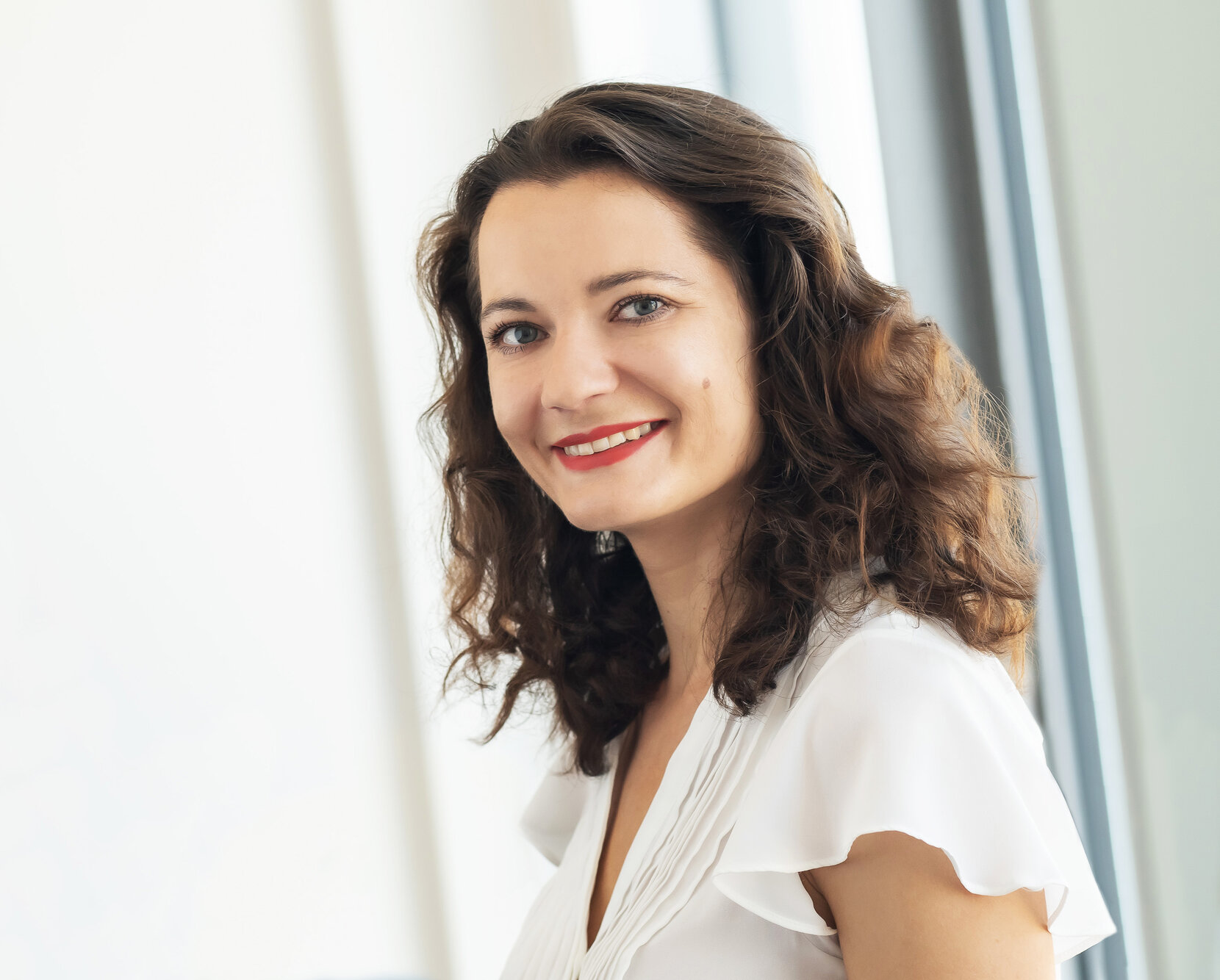Websummit in Lisbon is the biggest technological conference in Europe. Seventy thousand people from all over the world meet in the Portugal capital to learn about IT and marketing innovations.
How was it? Who should not miss the conference and what did I learn?
If you wonder if you should attend next time or just want a recap of the content, this is a summary article written for you.

The program evaluation (combination of IT, marketing, cultural, political, and social topics) 7/10
The program was very rich. Everyone who attended previous Websummits warned me that for all the days, I would just run from stage to stage and calculate which speech I would be able to make it to. And they were right :D. It was exhausting. I came to the event interested in marketing topics, which is my job and study area. But in private, I am interested in culture (there were many actors, writers, and reputable journalists) and society and politics (presentations made by politicians and social topics like women in IT, hybrid crises, hoaxes, and AI misuse). The dilemma was huge and eventually, I preferred the timeliest sufficient program. Even so, I took away a lot of knowledge and since I am inclined to the fact that in marketing you need to be inspired outside the bubble rather than within some rules of the job, I calmly went to Vladimir Klitschko’s performance instead of an interesting speech about social networks. And I don’t think I did wrong, many marketing lectures skimmed the surface too much, and Klitschko in particular trained me more in marketing than most of the speaking experts. His slot was full of clear, understandable, and powerful messages. He showed how to creatively and directly communicate his message so that everyone in the hall remembers it. Very inspiring (and emotional, because we are talking about the state of a country that is at war).
Masterful organization 9/10
How to deliver a top-notch experience to 70,000 people? I don’t know, but the Websummit organizers do. Registration was possible already at the airport in a huge tent, they prepared a sale on the tickets for public transport throughout the festival, and everything was properly marked on the venue and in the city.
The group of volunteers was fantastically coordinated and with a smile on their faces, communicating in perfect English.
The accompanying program and evening party brought exactly the amount of fun, exploring the city and making new friends that you expect from it.
The Websummit was also organized with ecology in mind, with no unnecessary leaflets and promotional materials. On the other hand, it affected the merch somewhat negatively. They only made limited edition t-shirts. Although there was no payment for them, they were given out in one place on one day, and nobody even knew about it. If they didn’t unpack right in front of my eyes, I wouldn’t have grabbed it either. At the same time, everyone wanted them and would wear them proudly. If every visitor who stopped me and asked me where I got the T-shirt would give me a euro, then today I would have a full treasury for next year’s trip.
The Lisbon City 10/10
Lisbon is beautiful, extremely lively, and yet properly relaxed. I think the organizers succeeded in choosing the location. The Portuguese are calm and smiling people and everything worked, they went full speed, on time, and 100%.
If you’re there, stay in the center, stuff yourself with pastel de nada and bifanas. Visit the castle, the Belém district, and its landmarks, and walk in the Alfama district. Spend evenings in the city on seafood specialties, and taste fantastic green wines or porto tonic. Sit outside and enjoy the atmosphere of the city (still around 20 degrees in November).
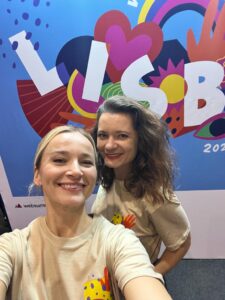
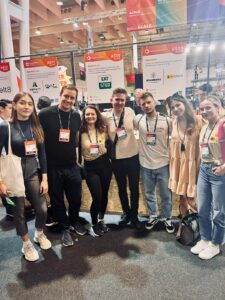
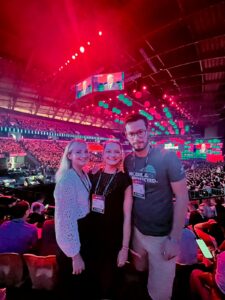
Key takeaways from the conference content – AI dominates all topics (which became a bit annoying)
Yes, I know it’s a “game-changer”, but it needs more practical tips than philosophical talk, and there’s no need to push it into a debate that doesn’t concern it at all.
However, a few things caught my eye, here they are:
In the panel discussion: Will GenAI transform marketing and advertising? it was said that we have been using AI for a very long time, there is no need to go crazy over it and its main task is to save us time. As an example, the American chain Walmart was used, for which artificial intelligence today creates website landing pages for specific target groups. AI also automatically selects influencers for cooperation. It checks their content, tone of voice, etc. to find those that are in line with the brand, thus eliminating the risk of damage to the brand name. They minimize the selection to about 15 and then the person hand-picks the right ones with whom to establish cooperation. In short, AI saves their time (nicely put: “give them the time back”), and it doesn’t take away their jobs. There’s more time for strategy and less stress. So the panel’s view was that AI will make people more productive.
In addition to his beautiful ideas about democracy and war, Vladimir Klitschko impressed me with his attitude towards the modern state. He has his own foundation and VC fund and is an ambassador of Kyiv Digital. He says “The way to eliminate corruption is digitalization. Corruption happens when two meet in private. I think we can destroy corruption when we digitize processes.” I confirm that it also works that way in practice. Even on ordinary things like work tasks. In our TULIP platform, all steps and modifications are recorded, so the company (and auditors) know who modified/created/deleted/approved/rejected what and when.
Marketing in B2B
“Word of mouth” is key in B2B for any segment. Therefore, it is necessary to work mainly on the customer experience. If that doesn’t work, no amount of marketing money will help you.
In one panel (unfortunately, I don’t remember the author) it was said that the reason behind the success of his videos is that he didn’t follow people’s advice. They told him to watch the algorithm and that if he wanted to make two-hour videos, no one would watch it. His attitude is that he treats people like they’re smart because they are. At the same time, he approaches the audience as his family and presents content to them in this style. A colleague from the panel (an American YouTuber) confirmed this narrative with her own experience. Her audience grew in direct proportion to how natural she was.
The key message of this panel: „People don’t pay for the content, they pay for communities.“
An excellent lecture was given by Tilo Bonow, founder and CEO of Piabo Communications, an agency from Berlin. He focused on storytelling and gave some useful tips:
- According to him, only 5% of people remember statistics and stories are up to 22 times more memorable than numbers.
- Build stories that touch on these key emotions: fear, frustration, hope, excitement, anger, fomo (fear of missing out), and the desire to be first (personally, I would add more positive emotions ).
- Language matters: “60 seconds seems faster than 1 minute”, “30 nights sounds longer than 1 month” or “12-year-old whiskey sounds better than whiskey from 2011” :D.
- Think like journalists. Make your stories relevant, different, and current.
- There is a rule of the golden circle where it is said that you should always be ready to say what you say, how, and why, but Tilo added WHO to its center. He claims that it is also important to focus on who is saying it and build a personal brand (ideally a CEO or other executive) – people are interested in people and follow them more than brands.
- The world doesn’t have to know you, your target group does.
- And a reminder from Til: PR does not mean “press release”, but public relations .
- When communicating with journalists, build long-term relationships, not one night stands.
(I basically stole the whole lecture from this gentleman, you’re welcome).
From the “How to sell your influence” lecture, I learned that if you want to sell using social networks (and with influencers on these media), it is not recommended to start with TikTok or Instagram, but rather with YouTube. YouTube is often forgotten because you can’t buy directly on it, but statistics show that compared to Instagram, sales are ten times higher for every dollar spent on these networks.
Generation Z and advertisement
A young Polish marketer came up with great insights into Generation Z as a content consumer. She said that advertising has always been characterized by perfection. Therefore, anything perfect on the networks immediately evokes advertising. Generation Z believes in authenticity, which is why it rejects it outright. She presented interesting statistics, according to which this youth can detect that it is an advertisement much faster than the millennials. This is because they are the first generation to grow up completely with social networks.
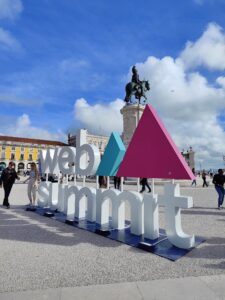
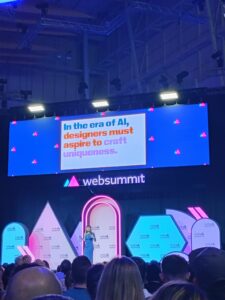
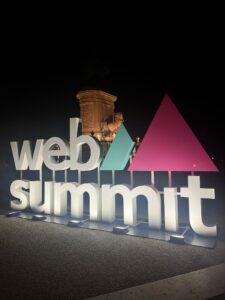
Will I come back in 2024?
I don’t know, I was disappointed that the expert lectures were short (mostly around 20 minutes) and therefore there was no space to go in-depth with the topic. It would be better to reduce the number of lectures and rather delve deeper into the topic. I also missed more IT topics. I do not include advertising presentations of tech companies and startups there. There were enough of them, but they did not bring much from a professional point of view. The program did not fully meet my expectations, and if Websummit turns into a startup conference, I will probably not attend anymore. However, if they will deliver quality content in IT and marketing areas, I will buy the ticket again with enthusiasm. The city and the organization left a great impression on me.
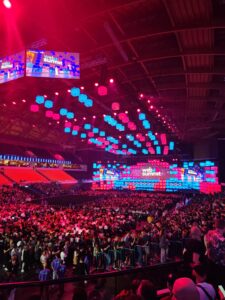
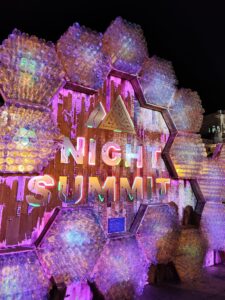

LIKED WHAT YOU'VE JUST READ?
Feed your thirst for more! Subscribe and receive our news directly in your inbox.
Email: sona.vyhonska@tulipize.com
Phone: +421 917 882 324
